October Newsletter
Volume 1, Issue 9
October 1, 2020
Special Points of interest

State Director of Instruction
Welcome to the October issue of the MRC newsletter. We hope all of you and your family and friends are staying safe.
A lot happened in September. Probably the biggest and greatest news for the Michigan referee community is Nick Balcer having his debut MLS match on September 19. He was appointed as AR2 on the match between LA Galaxy and Colorado Rapids. We were fortunate to be able to interview him a few days after the game. You can find the link to the interview below.
On the other hand, we are sad to announce that Dean Kimmith has decided to step down as the State Director of Assessment. He has served in this role for many years and helped many Michigan referees develop. He reflects upon his experience in his essay below. We would like to thank Dean for all the work he has done for the referees in the state.
Many of you might have started refereeing games again. The second half of September became very busy for players, coaches, referees, and administrators, with the resumption of many games. Not all leagues are playing. But I am sure many of you have heard from your assignors.
District Directors of Referee Development (DDRDs) have had a few virtual meetings in the last month and a half to prepare for the 2020-2021 recertification season. Because of COVID-19, we will not have any upgrades from the grassroots referee certification to regional referee certification this year. Those who have applied to be considered for an upgrade have heard from the MRC by now. Please watch out for another email next year about what to do to upgrade in 2021.
All current grassroots referees (i.e. those who have a 2020 badge) have their referee license extended for free, as long as they complete recertification requirements. The requirements will include various online modules (on GameOfficials), along with a Zoom meeting. DDRDs have been instructed how to hold these Zoom meetings. MRC’s website will contain information how to recertify and register for a Zoom session. Each session will last 90 minutes and will cover the 2020-2021 Laws of the Game changes. It will also be a great place for you to ask any questions you might have.
We also understand that some referees did not recertify for 2020 but still wish to officiate this fall. These referees will have to pay for registration. An email with instructions was sent to all officials how to update their license to a current status.
As always, our October newsletter is full of exciting stories and information. Since our inaugural newsletter in March, we have featured top-level referees and former referees who have ties to Michigan. Starting this month, a new column series will replace “Michigan Referees Beyond Michigan.” Every month, a current or former member of the Michigan Referee Committee will be featured. You may know many of them by their name, but you may not know their background or personal stories. This month, our State Referee Administrator, Carlos Folino, agreed to be interviewed.
Our regular content includes Referees of the Month and Who’s Who. We are featuring Luke LaMere for the Referees of the Month column. We have Tim Deters for Who’s Who. Both Ken Wikle and Ryan Homik have their columns. Nick Balcer also talks about the importance of report writing.
Beyond this newsletter, please be sure to follow our Twitter (@MichiganReferee) and subscribe to our YouTube Channel.
Inside this issue
Time For Change
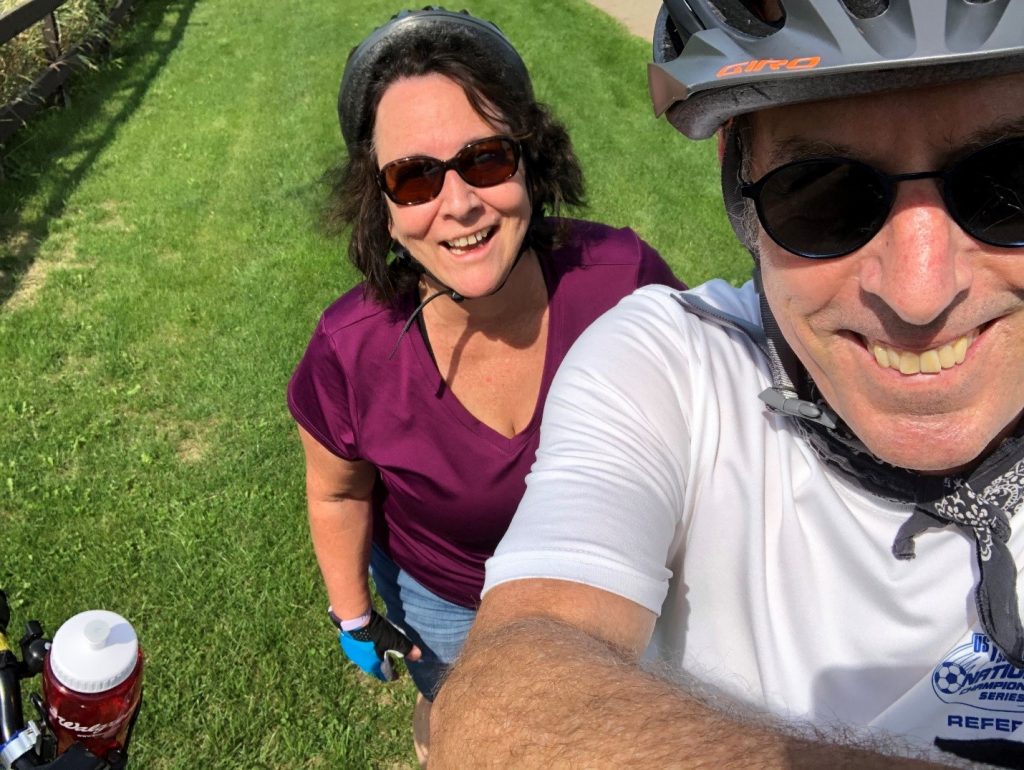
Well, this isn’t easy, but I’m resigning as State Director of Assessment for Michigan effective November 1. I had an absolute blast and was honored to hold this position for so long and, in a small way, help our referees grow and advance. Let me be clear about a few things: my colleagues on the Michigan Referee Committee (MRC) – particularly Carlos, Ron and Yuya — will always remain good friends. They are working very hard to keep Michigan as one of the top states for referee development. Chico V was particularly supportive and a ton of fun as well. I have fond memories of stomping around east London pubs with him waiting for a West Ham match to start!
Working with so many referees of all ages over the years was extremely rewarding. I will miss them dearly – they kept me feeling young. I do plan to stay active in the Lansing area helping brand new officials get started. I’m proud of what Andrew Hoard, John Douglas and others with the Greater Lansing Area Soccer Referees Association have done in the area of mentoring programs. I look forward to working with them in the years ahead.
It’s been a strange year with the suspension of games, particularly at the adult level. I want to reassure all those who have applied for upgrade to Regional Referee that the MRC is 100% prepared to help them with their required assessments and other steps in the process once play resumes next year. Carlos Folino can address any questions that you may have.
There are plenty of things I want to devote more time to now that I’m retired. I have a grandchild in Chicago that needs me to visit more often. My younger son still lives at home and tennis is always on the agenda. There will be Grateful Dead concerts to attend! My wife Ann will also be retiring in the next few years as well. I won’t be bored!
To each and every one of you that I’ve had the pleasure to work with – a heartfelt thank you. Stay in touch – dean.kimmith@gmail.com.
Michigan Referee Committee: Carlos Folino

State Referee Administrator, National Referee Coach
For the October newsletter, we interviewed our SRA, Carlos Folino.
When and how did you become the SRA of Michigan?
I officially became the Michigan’s State Referee Administrator on January 1, 2001. The previous SRA, Dale Brasseur, decided to retire and I was moving from National Referee to National Referee Emeritus. So I thought it was a good way to give back to Michigan’s referee community.
How were you involved in Michigan soccer before you became the SRA?
My involvement was refereeing youth, adult, and regional leagues and helping the referee program in any way I could through instruction and assessments.
What are your major responsibilities as the SRA?
As the SRA, some of my responsibilities are to recruit new referees, to recertify current referees, to offer continued education, to have close relations with U.S. Soccer, Michigan State Youth Soccer Association, and the Michigan Soccer Association
What do you enjoy the most about being the SRA?
The relationships with referees. I have seen teenagers become adults. Some have developed into good referees but most importantly, I have been in contact with some that have become great people.
If you can brag about MI referees to other states, what would it be?
We have the most professional acting referees. Michigan referees are respected everywhere in the country.
What is your referee background? When did you start refereeing?
I started refereeing in 1982 for AYSO, because a friend of mine told me that if he did not get a referee, his team could not play. I realized I enjoyed refereeing and became a U.S. Soccer certified referee.
What is the best memory of being a referee?
I was fortunate to referee many important competitions, but my best memory has to be when I was the referee of the National Championship game between Michigan Bucks and Chicago for PDL.
What is the best memory of being the SRA?
Being appointed to the National Referee Committee. I served for 8 years on the committee.
Besides being the SRA, what other roles do you have in the soccer world?
At this time, I also have the role as a National Referee Coach to help U.S. Soccer develop its referees.
What advice do you have for young aspiring referees?
Refereeing is a hard thing to do. You are expected to be 100% correct from the beginning till end of the game. Every decision will be questioned by someone. But at the end of the game, you should walk away knowing you did your best. The experiences you have while refereeing (good or bad) will carry into your life and because of it you will be able to handle life situations with more confidence.
Thank you, Carlos.
Referee of the Month: Luke LaMere
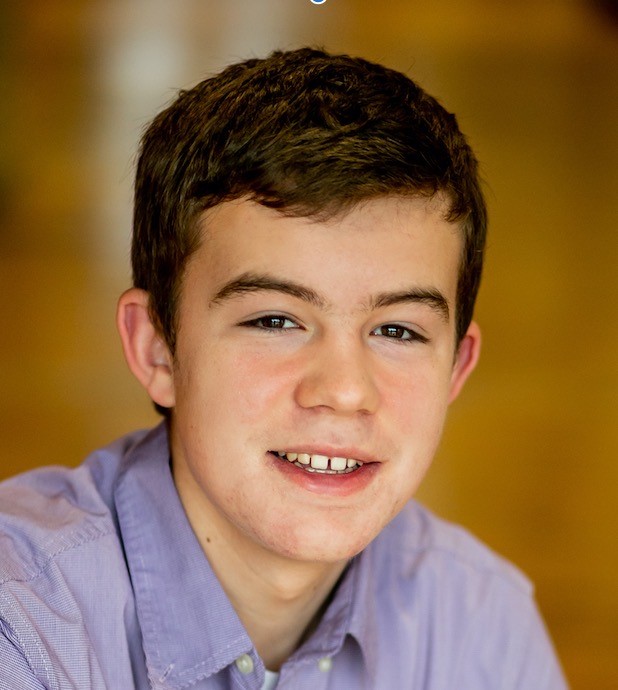
Grassroots Referee
Soccer has been a major part of my life since way back in kindergarten. Along with a bunch of other kids from my elementary school, I would head over to the miniature soccer fields behind the local farmers’ market to practice a few times per week. Over the years, I started training more and more, all the while developing my love for the game by playing FIFA video games and watching countless professional matches. Between the Premier League, Bundesliga, MLS, and a few World Cups, I was hooked.
I would probably call the beginning of middle school my golden years of soccer. It completely occupied my free time and was pretty much all I thought about outside of school. Naturally, I wanted to play professionally. However, when the time came around for me to earn a 2015 entry-level referee certification, I did not hesitate to sign up. My eighth-grade self figured that if nothing else, this would be an interesting new way to experience the beautiful game. Little did I know, refereeing would have a profound impact on my character.
I eventually waned out of playing in high school, but remained involved in the sport as a referee. Not only did I get to experience more games than I had as a player, but I also developed important leadership qualities and made lasting memories. I actually got certified at the same time as my dad, so I’ve had the lucky opportunity to spend many weekend hours on the field and traveling to tournaments with him. I also persuaded my friend to get certified which led to my favorite memory as a referee: working at a tournament with both him and my dad on a team.
Most often, I work with other referees that I’ve never met before, or people that I know from a few games back. After some brief introductions and constructive discussions, we quickly become a cohesive team over the next ninety minutes. I think that this skill of collaboration over a short amount of time is one of the most important life skills that referees acquire. Also, I find that the most enjoyable part of refereeing is meeting new people and making connections in my local community and beyond. As I advance as an official, I hope to continue meeting more people that challenge my perspectives.
Aside from refereeing, I am also studying at the University of Michigan with an intent to major in mathematics. I also enjoy distance running, mountain biking, playing violin, and eating Indian food.
Mentor Development Meeting
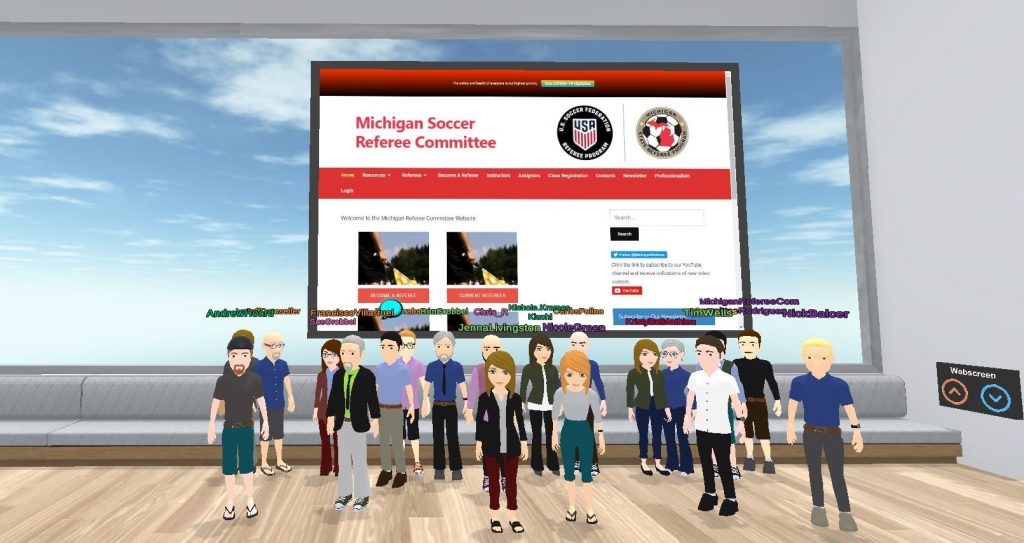
On September 22, the Mentor Development groups had a joint meeting. It was the last meeting of the five-session series that started in June. In the session, we invited three active referees: Nick Balcer, Nicole Green, and Sam Pizzimenti. These referees shared what kind of assessment feedback was more useful than others. Using an example clip from a recent NISA match, mentors also discussed how to offer most helpful feedback to referees.
One of the take-away messages was connecting the dots. A game has many small incidents that may end up culminating with a more serious offence. Mentors observing a match, just like referees, need to be able to identify a pattern of fouls or an increasing level of frustration, so that during the post-match debrief, they can correctly share how a serious incident ended up happening.
Another take away was the specificity of advice. “You need better positioning,” “You need to concentrate more,” and similar insights are not very useful because they do not clearly say what exactly a referee should do. Mentors should provide more specific advice that a referee can act upon.
MLS Debut Match

National Assistant Referee
On September 19, Nick Balcer had his debut MLS match. The game was played at Dignity Health Sports Park, CA, between LA Galaxy and Colorado Rapids. He worked with Ted Unkel (referee), Jeremy Hanson (AR1), Michael Radchuk (fouth), Ricardo Salazar (VAR), and another official with a Michigan tie, Katy Nesbitt (AVAR).
We interviewed Nick a few days after his match and asked him to reflect on this experience. How did he learn about the assignment? How did he prepare for the game? You can watch the interview here.
Assessing the Severity of an Offense: Part 4 (Timing: Early, With the Ball, or Late)
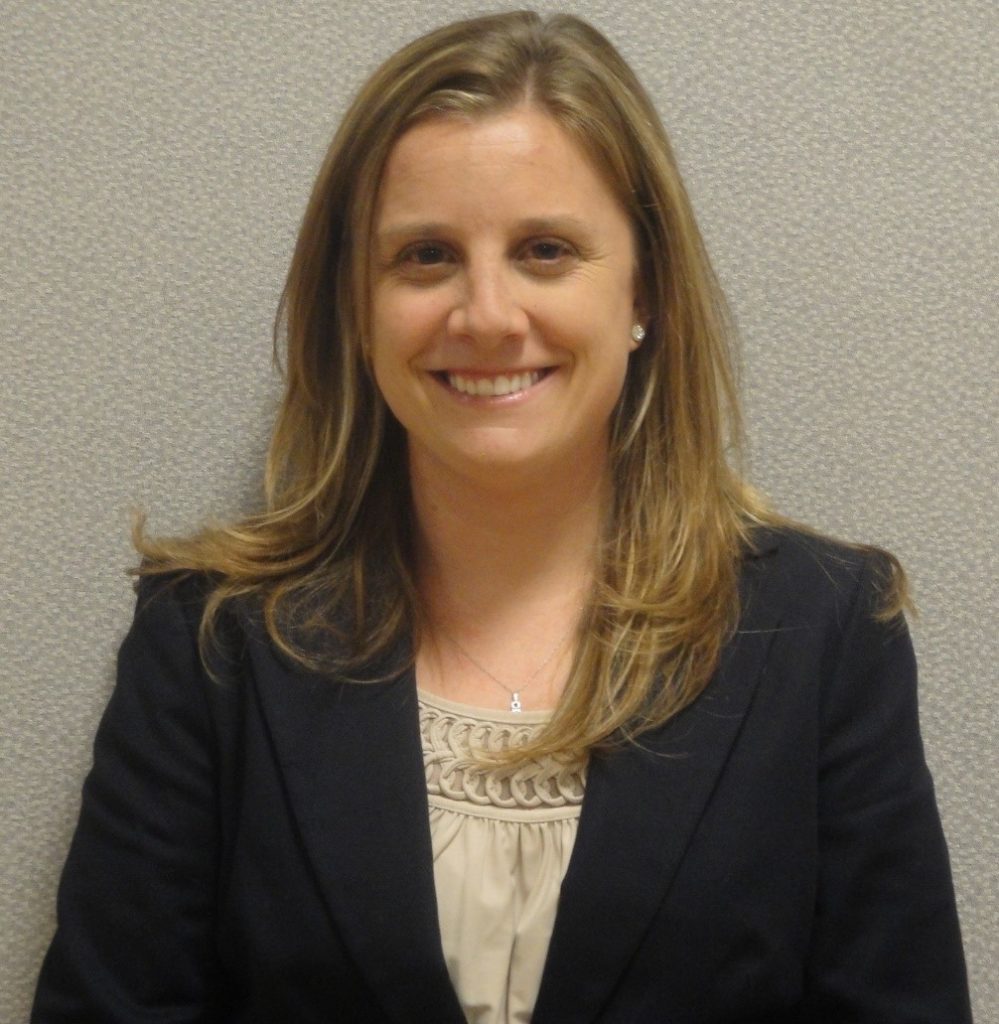
National Referee Candidate
Last month, we introduced the concept of speed, force, and distance as a consideration for determining foul severity. Let’s review the two example clips:
VIDEO #1 : Red #20 fouls White #19. Contact is made when he steps ahead of his opponent, thigh to thigh contact, causing him to trip and fall to the ground. Players are challenging for the ball with low speed and distance. The expected decision is a foul.
VIDEO #2 : Blue #11 fouls White #88. He does make contact with the ball, but his trailing leg kicks the back of his opponent’s leg, causing him to fall. The speed/distance and force is medium. The expected decision is a foul and yellow card.
Moving on to our new topic for this month and the third consideration to help determine the severity of a foul: Timing – early, with the ball, or late. When we say timing, we want to think about when the contact between players occurs in relation to when the players are attempting to challenge for the ball.
Here are a few examples of some common plays that we might witness:
- Early: At midfield, two players jump in the air attempting to win the ball from a goal kick. The player behind pushes her opponent in the back, the player in front falls to the ground, then the ball arrives at the spot the players jumped in the air.
- With the Ball – A long ball is played down the sideline. An attacker and a defender are running onto it. Both players make an attempt to play the ball by sliding. They both make contact with the ball and it goes out of bounds. In the process, both players end up on the ground.
- Late – A player is attacking with possession of the ball. He passes the ball to a teammate and then a defender lunges at the original attacker and trips him, after the ball has been played away and received by a teammate.
Generally, when the player’s contact is at the same moment as an attempt to play the ball, this will be lower severity and perhaps a fair challenge.
Conversely, if the player’s contact is either very early (before the ball arrives) or very late (after the ball is away), this will be higher severity. Consider how long the interval of time is between the challenge between the players and the ball coming or going. The more time elapsed, the greater the likelihood in higher severity of the foul.
Let’s practice this by watching a video clip:
After watching both plays, please complete this brief quiz. The appropriate decisions will be reviewed in next month’s newsletter.
Who’s Who in Michigan: Tim Deters
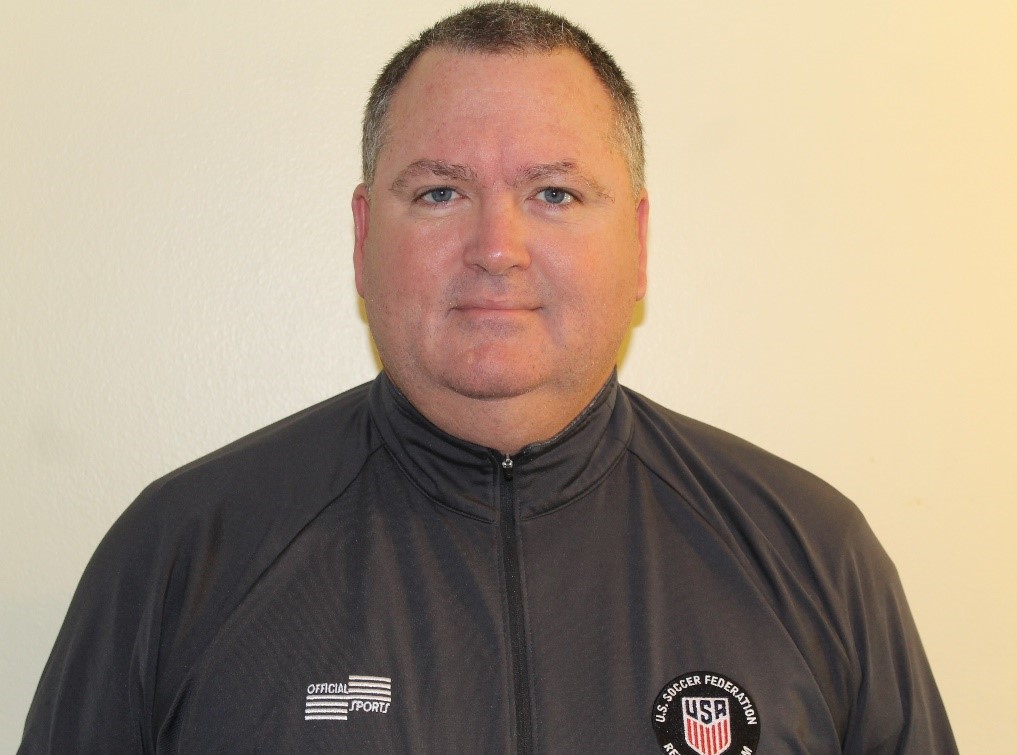
Former National Referee and National Assessor
First, I want to say “Thank You” to Yuya for providing me the opportunity to be included in the monthly Michigan newsletter. I started refereeing intramural soccer when I was in college to earn a bit of money (I’m not going to say what my first year of registration was). Since then, I have been extremely fortunate to meet a number of great people.
As I progressed as a referee, I was fortunate to be involved in five national finals at the youth, adult, and PDL levels. I was a National Referee from 2003 through 2008, during which time I was selected to attend the Nike/Manchester United U15 World Tournament, and the USSF Soccer Festival. These events, the guidance that I received, and the referees that I was able to connect with, helped me understand the sacrifices that we all make to achieve our respective levels of refereeing.
Even as an active referee during that time frame, I knew that I needed to give back to the program by becoming an instructor and assessor. I became a National Assessor in 2010 – and have been a Referee Mentor/Coach since the programs were combined. I enjoy helping all levels of referees get better at their craft. I have attended a number of regional events, National Championship Series, and President’s Cup. These events, where referees are so eager to acquire more knowledge and hone their skills, genuinely exceed my expectations.
More recently, on the administrative side, I now have a role for the Midwest Region President’s Cup and a position with US Youth Soccer as a liaison for the Midwest & Great Lakes Conferences. With these positions, I am able to help referee coaches be more effective in their feedback and discussions with referees, while still being able to observe and advise grassroots & regional referees.
I look forward to helping the Michigan Referee Program in any way possible. I have been lucky enough to have been able to meet and assist a number of referees in Michigan. I appreciate the warm welcome that I have received from the referee committee and everyone that I have encountered. I am excited to be able to get to know and support as many people as possible.
Tip of the Month: Report Writing

National Assistant Referee
Many referees joke that one of their least favorite things about officiating is when we have to fill out a report for an incident that happened in the game. And at times as much as we dislike filling out reports, they are a key element of officiating. Whether or not we get the call right on the field, we need to make sure our reports match what we (the entire crew) observed happen. To do this I am going to give you some key pointers to follow when writing a report. Then next month, we are going to show a video clip of an incident and an example of a well written report from that incident.
Tips for report writing:
Take your time: Often after a game where we have an incident, we are still high on adrenaline from the match and the game can be a whirlwind in our minds. It is best to relax and settle down after the match before attempting to write a report. In some cases (depending on what the league reporting requirements are) its best for the referee to write the report the next morning.
Consult with crew members: Just as we are out on the field as a team, make sure the reporting is done as a crew as well. Gather information from all crew members. Each piece of information is vital in getting a report accurate.
Only use facts: When writing a report, only write in facts that you/the crew know. Avoid using phrases such as “it looked like” or “I think s/he said.” State exactly what was seen and heard by the crew. As a note, always write out word for word what was said to a referee if language is being included in the report. That includes any vulgar language that was used too.
Use the IFAB Laws of the Game: Report writing isn’t a closed book test. Make sure to always have a current law book with you for report writing. In doing so, reference the terminology in the laws to describe what happened in the incident, but also make sure the terminology is correct. For example, you cannot show a player a red card and send them off for serious foul play on a tackle that you describe as “reckless.” Remember the key words that describe the offenses that are listed throughout the laws make the difference of writing a correct report.
Have someone proofread: As great of scholars as some of us referees are, it is helpful to have a 2nd set of eyes to review our report before it get submitted to a league or administrators. The smallest details can make the biggest difference.
Reports may seem burdensome to many of us, but they are used by the teams and leagues to determine discipline to players, and also used as a legal document of our account of the incident that has occurred.
John Bieniewicz College Scholarship
John Bieniewicz was a long-time soccer referee who passed away on July 1, 2014, after being assaulted and sustaining a fatal injury while refereeing a soccer game. To all who knew him, John’s passion for soccer was only surpassed by his love and devotion for his family. In John’s memory and in conjunction with his family, the Michigan Referee Committee has established a scholarship fund for five high school seniors who share his passion for soccer. Attached below is information regarding the John Bieniewicz Golf Outing which helps fund the scholarships and the scholarship application for anyone who is interested in applying.
You can find the brochure here.
You can find the application here.
More can be found on the scholarship’s social media outlets.
Instagram: @jbieniewicz_scholarship
Facebook: John Bieniewicz Memorial Scholarship
Handling Misconduct: First Step

Regional referee first registered with USSF in 1978
A referee in one of the recent Zoom meetings asked the leader what was being done about addressing coaches who verbally abused referees. I am reminded of an incident that occurred when I was an assignor.
One of our referees, who was about 14 years old, was doing a girl’s middle school game. In this game, players started to swear. The referee was either too reluctant to act or too surprised, but let the profane language continue. He did not issue a red card. He did not caution anyone. He did not stop the game and notify the coach.
When he got home that evening, he told his mother what had occurred. His mother was outraged and decided she needed to do something about the situation. She looked up the school’s phone number and called the athletic director. She then told the athletic director what her son had witnessed.
The athletic director did not hesitate and responded “If your son was the referee and witnessed foul language by our players, why didn’t he do something about it? That was his job.”
The moral of this story is evident and applies to all cases where acts of dissent, misconduct, and poor behavior occur on the field. The referee is in charge of the game and is the party responsible for taking actions against unsporting behaviors or other misconducts. Vacating this responsibility ensures that no one will have an opportunity to learn what is proper and acceptable.
Referees run into poor behavior from players, coaches, and spectators regularly. What you allow by inaction is what will continue to occur.
You ask what is being done to improve player and coach’s conduct.
Ask yourself what have you done to address this issue in the games you do?
The Art of Health

Taking vitamin supplements may be beneficial to help fill holes that are in your diet. It is important to keep in mind that this won’t make you “healthy” but rather help prevent you from getting sick or having any adverse effects due to deficiency. Here are a few tips for deciding whether you should take vitamin supplements.
Find the video here.
Michigan Referee Committee
State Referee Administrator (SRA): Carlos Folino
State Referee Chairman (SRC): James Wheeler
State Youth Referee Administrator (SYRA): Ronald Grobbel
State Director of Assessment (SDA): Dean Kimmith
State Director of Assignors (SDoA): John Corbett
State Director of Instruction (SDI): Yuya Kiuchi
State Director of Futsal (SDF): Richard Gilbert
Email addresses are the title in parenthesis plus @michiganrefs.org
Please reach out to us!
If you have any referee-related stories to share or someone you think should be featured in this newsletter, please reach out to us at sdi@michiganrefs.org.
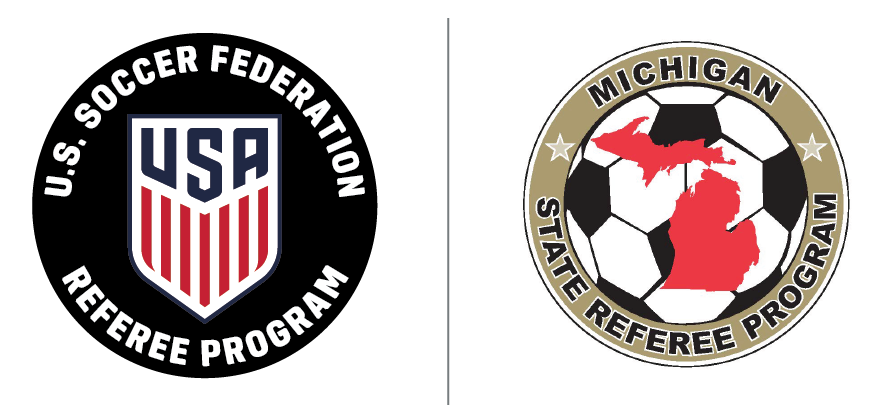
MRC announcements
As mentioned at the beginning of this newsletter, the second half of September became very busy. In less than two (2) weeks’ time, match schedules were released and referees started receiving invitations to officiate the first youth games of the season. Many referees were waiting for such an announcement before they completed their 2020 recertification. An email with instructions was sent out to all (if you did not receive, double-check your Game Officials settings to make sure your email is correct as well as ensuring you did not mistakenly “un-subscribed” from such notices).
Similar to the published Laws of the Game, whether you agree with the MSYSA Game Day Processes that are now in effect (with cooperation with the U-M School of Public Health) – ALL must be followed. Please check your Game Officials home page (COVID-19 update message) to download this document as well as other valuable information.
Have a great shortened season. Contact one of us on the Michigan Referee Committee if you have any questions.


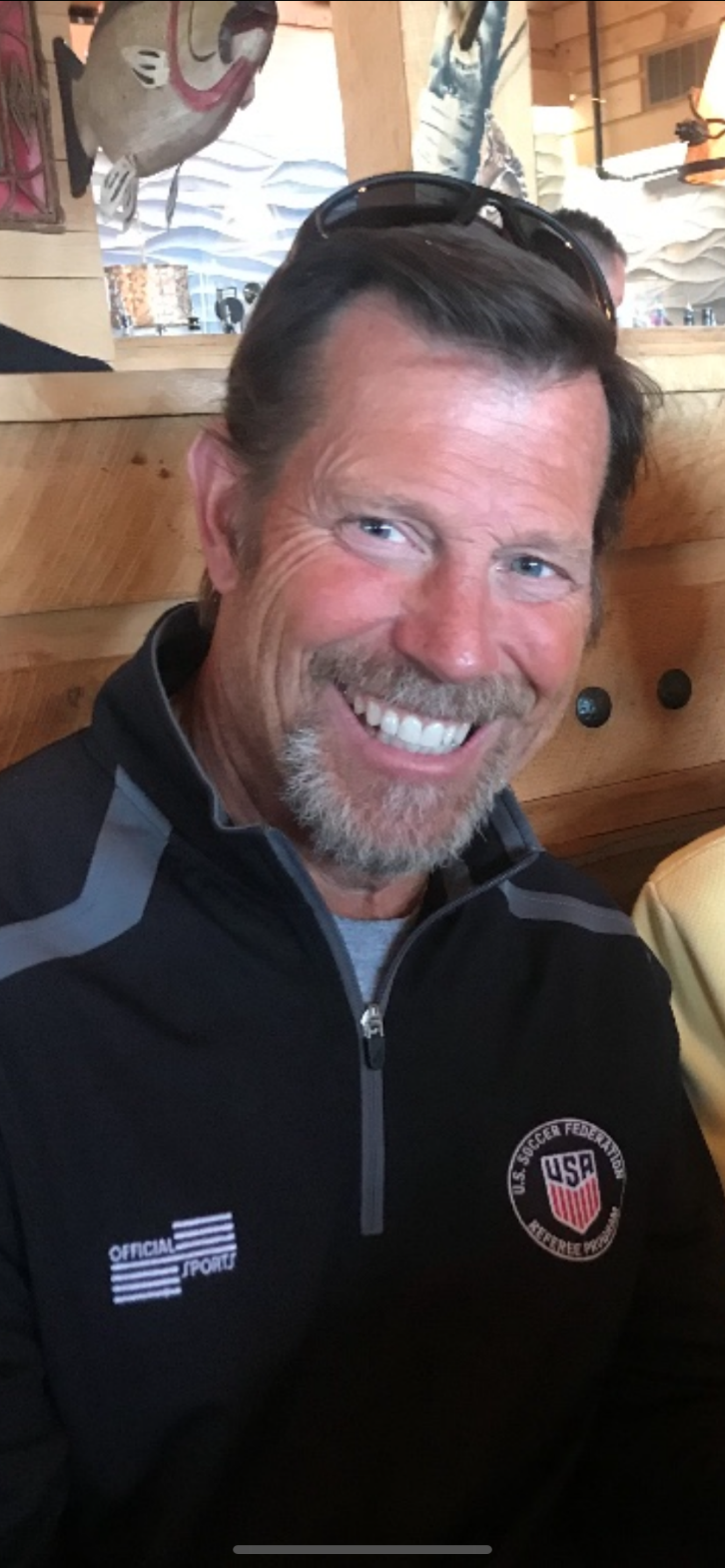
No Comments
Sorry, the comment form is closed at this time.